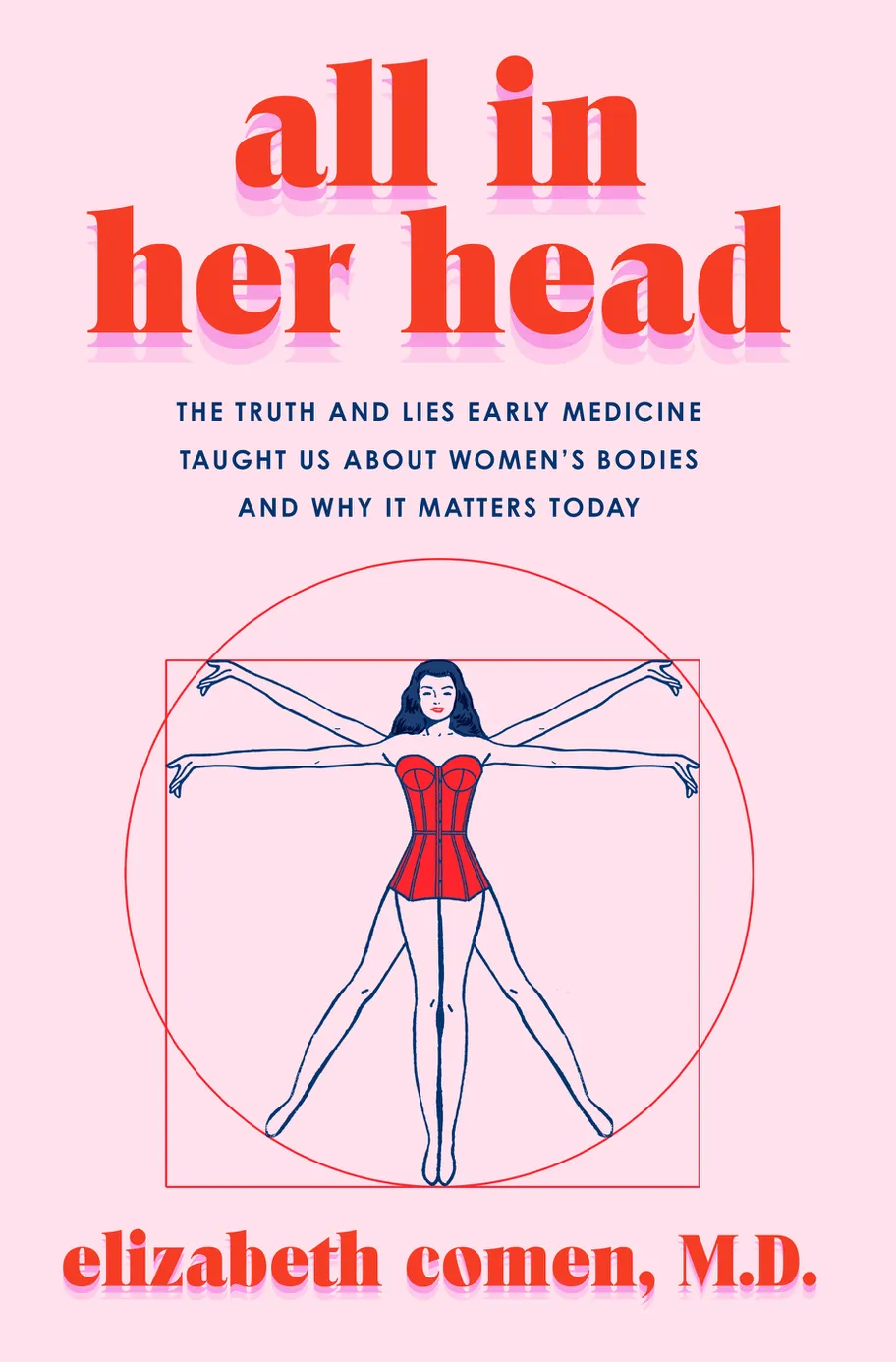Dr. Elizabeth Comen, oncologist and author of All in Her Head: The Truth and Lies, Early Medicine Taught Us About Women’s Bodies and Why It Matters Today, explains why there’s still a gender bias in medicine today. Whether it’s anxiety or “all in your head,” a patriarchal medical system lingers from a time when male doctors saw the female body as inferior, prone to exaggerated ailments, and ruled by hormones.
“Why are we still neglecting women's sexual health, for example?” says Comen. “It wasn't that long ago that women might be put in an asylum for that, or they might have some of their organs removed for that.”
Comen argues that women tend to be more likely to be misdiagnosed and less likely to receive pain medication than men. She says that research today indicates that men and women present and respond differently to disease and treatment — not just because of their biological differences, but also due to social and psychological reasons.
“Women's health care is not just bikini medicine,” Comen says. “It’s not our breasts, it's not just our uterus, and it's not just the purview of a gynecologist. We are rather head-to-toe different than men in our biology and presentation of disease.”
Linda Greenhouse, a Pulitzer Prize-winning journalist, formerly with the New York Times and now at Yale Law School, talks about the history and legacy of reproductive rights legislation in America. Greenhouse, author of Justice on the Brink: The Death of Ruth Bader Ginsburg, the Rise of Amy Coney Barrett, and Twelve Months That Transformed the Supreme Court, says that “one of the great ironies right now is that abortion is legal in Mexico and it's illegal in Texas. And so it's the reverse of what it was two generations ago.”
Greenhouse highlights growing concerns and restrictions over women’s reproductive rights due to the recent Dobbs decision, in which the U.S. Supreme Court overturned Roe v Wade, protecting women’s access to abortion in the U.S. Despite the strong role the feminist movement played in promoting Roe v Wade, “one thing that's really missing in that opinion,’ Greenhouse says, “are women.”
“It's really a decision about the role of doctors. I think it’s the second to last paragraph in Justice Harry Blackmun's opinion [that] says something like ‘We therefore hold that a woman in consultation with her doctor can choose to terminate a pregnancy.’”
The restrictions on access and bodily autonomy when it comes to reproductive rights further underscore the gender bias of women. Greenhouse talks about the current cultural and political dichotomy in the US and challenges the obstacles doctors face in providing comprehensive medical care to women saying, “the medical profession has not been as upfront and brave as I think it should be. They're struggling with this.”

In her book All in Her Head: The Truth and Lies, Early Medicine Taught Us About Women’s Bodies and Why It Matters Today. author Elizabeth Comen says “throughout Western medical history there has never been a powerful narrative that elevates women's bodies, their minds, our capacities as equivalent to men.”

Elizabeth Comen, pictured here, says “If you ask almost any woman [if] they [have] ever been called hysterical, whether it's a health setting or a societal setting, almost everyone has a story of being called hysterical or to calm down or [that] it's just all in your head. These are all variations on the same theme. Even though hysteria is a diagnosis – not one that we use anymore – it’s still one that lingers in the psyche of our medical system.” Photo courtesy of Deborah Feingold Photography

Linda Greenhouse, pictured here, says “[polls] had indicated in the late 60s and early 70s, [that] the most pro-choice of political parties was not the Democrats, it was the Republicans. Of course, that switched but it wasn't a natural switch. It was a carefully cultivated switch.” Photo by Jeff Elkins
Delve deeper into life, philosophy, and what makes us human by joining the Life Examined discussion group on Facebook.
